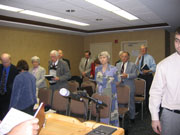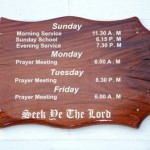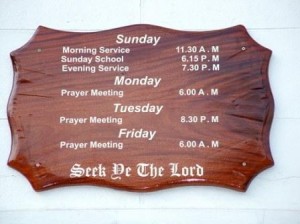 In a previous post, I reminisced about Will Smith and his transformation from the Fresh Prince of Bel-Air to Will Smith of Hollywood.
In a previous post, I reminisced about Will Smith and his transformation from the Fresh Prince of Bel-Air to Will Smith of Hollywood.
In the December 10, 2007 issue of TIME magazine, there was a writeup about Will Smith and how this transformation occurred.
What is Will Smith’s secret?
Intentionality.
Will Smith says his success is all according to plan.
TIME reports that “Because Smith has mastered the delicate art of appearing artless, few moviegoers realize that his is one of Hollywood’s most meticulously planned and executed careers.”
He hatched his plan at age 16 after his first girlfriend cheated on him because (in his mind) he wasn’t good enough. He decided that he was never not be good enough again. He made a plan to correct this, and never looked back. You can see the plan unfold as you watch the career of Will Smith.
10 Principles of Success
But what interests me are ten principles he operates by to execute that plan. Here they are as gleaned from the article:
1. Don’t have a Plan B. Relentlessly pursue Plan A.
Smith says “By even contemplating a Plan B, you almost create the necessity for a Plan B.”
As church leaders, while it is often a good idea to make plans, I think we sometimes get derailed from God’s vision for our lives by naysayers and setbacks. But if all we have is Plan A, we will work at it wholeheartedly because there is no other option.
2. Read. Read. Read. Find your answers in books.
Smith has a library stocked with books on every topic imaginable. He reads and studies to find the answers he needs.
This reminds me of something I heard Chuck Swindoll say: “Readers are leaders.”
3. Study what others have done, and emulate. Learn by watching others.
When Smith began his acting career, he would watch and emulate the various actors that came on the show, even mouthing their words after them when they rehearsed. Later, when he started to try to get into movies, he and his manager found a list of the 10 top-grossing movies of all time, and looked for patterns and similarities in them.
Church leaders can do this with churches, but we have to be careful how we define “success.” Big churches are not the most successful churches.
4. Be Friendly. Make contacts.
Smith had a knack for charming his way out of trouble and winning friends. This is how he met “DJ Jazzy Jeff” and later, James Lassiter, his manager.
Church leaders and planters cannot afford to be introverted. We must love to spend time with people.
5. Work hard. Be Diligent.
Smith has a good work ethic and works hard at everything he does.
Leading a church is not easy. It takes hard work and lots of sweat and tears.
We’ll save the final five principles for tomorrow.



 (Note: This post on church planting principles from Will Smith is from 2007… back when I thought I was going into church planting.
(Note: This post on church planting principles from Will Smith is from 2007… back when I thought I was going into church planting. 



 I am not sure how the hour from 11:00-12:00 on Sunday morning (or whenever you “go to church”) became known as “
I am not sure how the hour from 11:00-12:00 on Sunday morning (or whenever you “go to church”) became known as “










 Seeker sensitive churches try to correct the weakness of teaching churches by making their church programs and services more welcoming to unbelievers. They seem to do a great job at this.
Seeker sensitive churches try to correct the weakness of teaching churches by making their church programs and services more welcoming to unbelievers. They seem to do a great job at this.